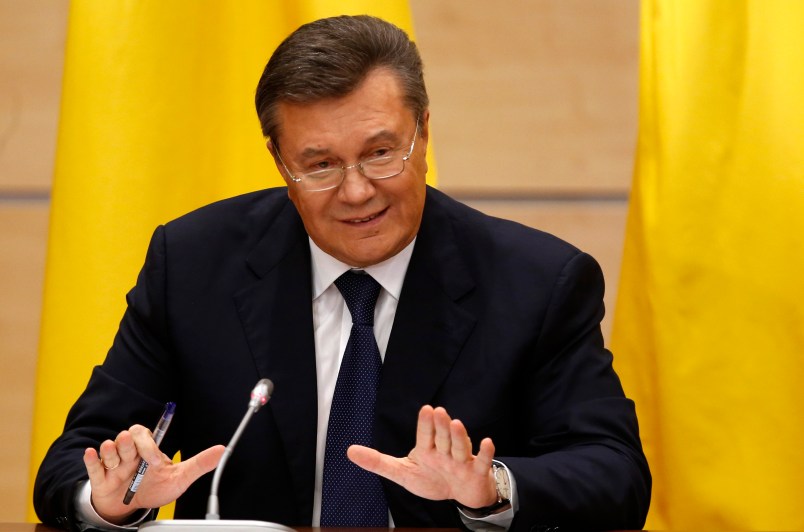If you have a moment, check out this Times article on the collapse of the Yanukovych government in Ukraine last February, the event that seemed to end one Ukraine crisis but in fact kicked the broader and continuing regional crisis into high gear.
Brittle states, especially once they are held together only by bare force, can and often do come apart very rapidly. There is a strong element of game theory and crowd action in the process – a rush for the exits that can be baffling. It has always been a bit of a mystery exactly how the end came for Yanukovych and why it happened so quickly. The Times article doesn’t quite solve that mystery so much as it illustrates that process of rapid government or state collapse – a chain of events that lacks any clear point of origination.
As the piece explains, just hours after President Yanukovych signed a ‘peace deal’ brokered by a group of European and American diplomats, he was fleeing Kiev for the east, which turned out to be a quick stop before exile in Russia.
So what happened? The gist seems to be that once Yanukovych’s security forces saw that he was trying to broker a compromise (and pulling back from a limited show of force the day before), they became afraid they would either be left at the mercy of armed protestors or perhaps face some sort of judicial process under a new government.
The telling quote comes from a member of the security forces, Aleksandr Khodakovsky, who like many in ranks believed that a show of force early could have settled the matter in the government’s favor. By February, he told the Times, “The atmosphere was changing. Everybody understood the government was not going to take decisive action. We understood that all the crimes we were going to commit clearing the square, in the last breath of the old government, would all be blamed on us.” (emphasis added)
A short time after Yanukovych signed the peace deal, leaders of the security forces who had been menacing and shooting protesters only hours earlier were calling protest leaders trying to arrange safe passage out of the city. The Times reporters looked for some central order to abandon ship. But there does not appear to have been one. A contagion of fear and self-preservation put the government’s security forces on buses out of Kiev heading east before Yanukovych himself even understood what was happening.






